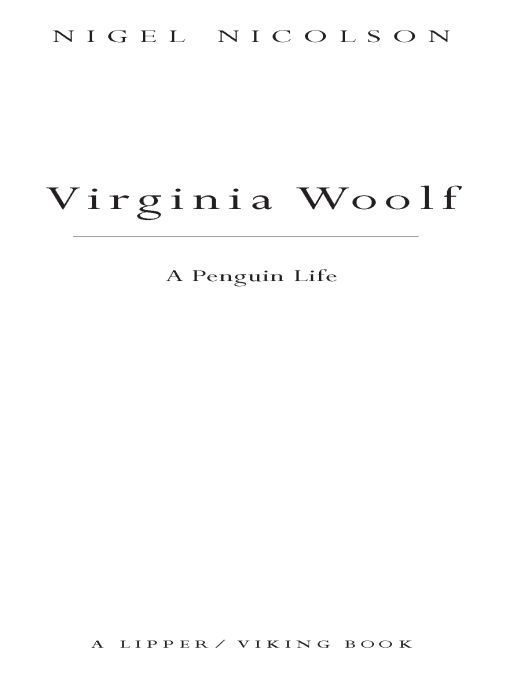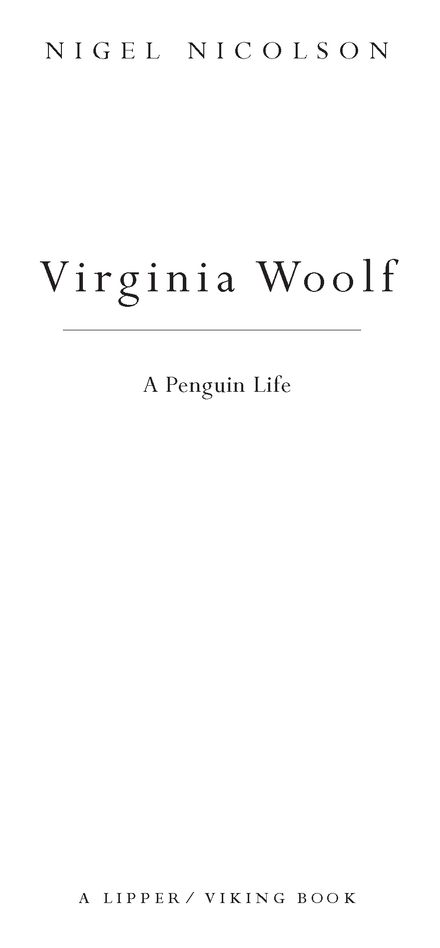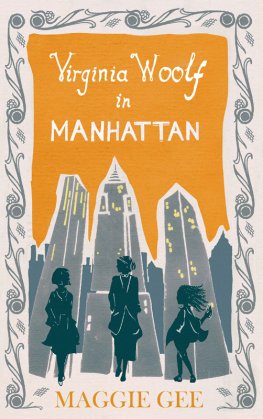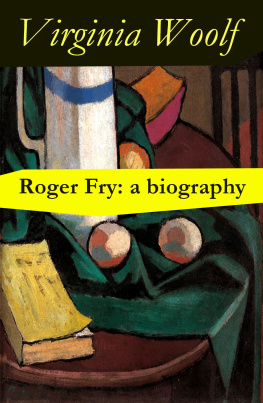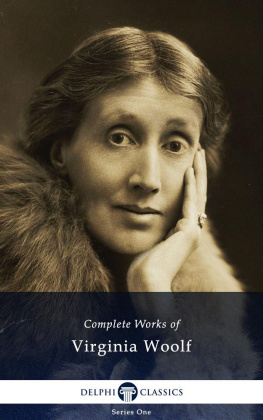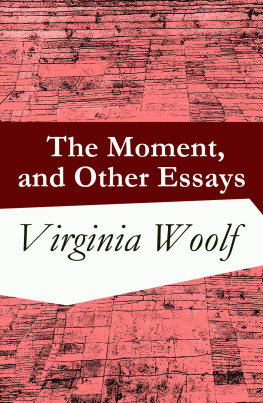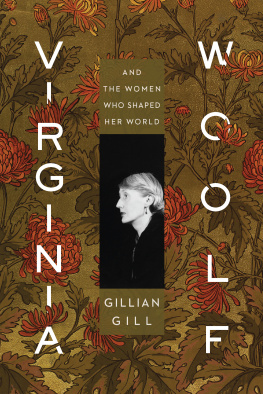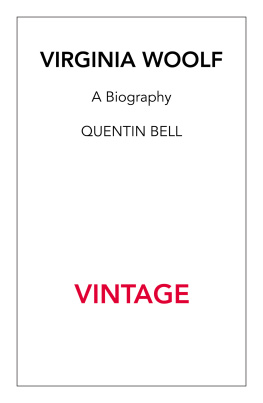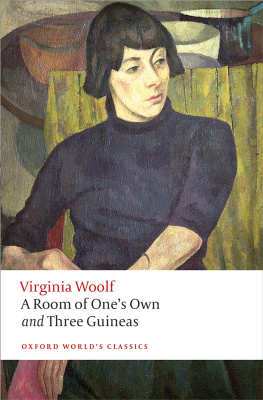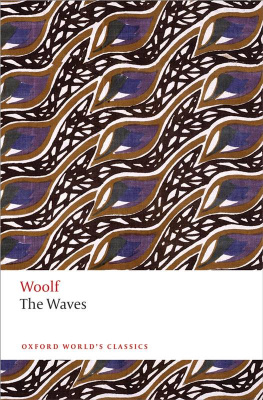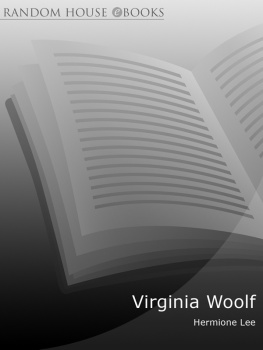Table of Contents
PUBLISHED TITLES IN THE PENGUIN LIVES SERIES:
Larry McMurtry on Crazy Horse
Edmund White on Marcel Proust Peter Gay on Mozart
Garry Wills on Saint Augustine Jonathan Spence on Mao Zedong
Edna OBrien on James Joyce. Douglas Brinkley on Rosa Parks
Elizabeth Hardwick on Herman Melville
Louis Auchincloss on Woodrow Wilson
Mary Gordon on Joan of Arc
Sherwin Nuland on Leonardo da Vinci
Nigel Nicolson on Virginia Woolf
FORTHCOMING:
Carol Shields on Jane Austen. Karen Armstrong on the Buddha
R.W. B. Lewis on Dante. Patricia Bosworth on Marlon Brando
R.W. B. Lewis on Dante Patricia Bosworth on Marlon Brando
Wayne Koestenbaum on Andy Warhol
Francine du Plessix Gray on Simone Weil
Janet Malcolm on Anton Chekhov
Marshall Frady on Martin Luther King, Jr.
Jane Smiley on Charles Dickens
John Keegan on Winston Churchill Roy Blount, Jr., on Robert E. Lee
David Quammen on Charles Darwin
Bobbie Ann Mason on Elvis Presley
Thomas Cahill on Pope John XXIII James Gleick on Isaac Newton
Kathryn Harrison on Saint Thrse of Lisieux
Robert Remini on Joseph Smith Paul Johnson on Napoleon
Hilton Als on James Baldwin
Ada Louise Huxtable on Frank Lloyd Wright
Thomas Keneally on Abraham Lincoln
GENERAL EDITOR: JAMES ATLAS
to Joanne Trautmann Banks
ACKNOWLEDGMENTS
I wish to thank Ed Victor, my literary agent, for suggesting this book to me and for much other help, and the following for permission to quote from Virginia Woolfs published books, diaries, letters and some unpublished papers:
The Society of Authors, as the Literary Representative of the Estate of Virginia Woolf, and Olivier Bell, the editor of her Diaries.
The Berg Collection of English and American Literature, the New York Public Library (Astor, Lenox and Tilden Foundation).
Quotations from other books listed in the Bibliography are acknowledged in the text, and covered by their fair use convention, which permits short quotations without specific consent from the authors, to whom I owe my thanks.
I thank Ms. Sue Fox for much help and advice.
N.N.
January 2000
I
IN HER CHILDHOOD Virginia Woolf was a keen hunter of butterflies and moths. With her brothers and sister she would smear tree trunks with treacle to attract and capture the insects, and then pin their lifelike corpses to cork boards, their wings outspread. It was an interest that persisted into her adult life, and when she discovered that I too was a bug hunter, she insisted that we go hunting together in the fields around Long Barn, our house in Kent, two miles from Knole, my mothers birthplace. I was nine years old.
One summers afternoon when we were sweeping the tall grass with our nets and catching nothing, she suddenly paused, leaning on her bamboo cane as a savage might lean on his assegai, and said to me: Whats it like to be a child? I, taken aback, replied, Well, Virginia, you know what its like. Youve been a child yourself. I dont know what its like to be you, because Ive never been grown-up. It was the only occasion when I got the better of her, dialectically.
I believe that her motive was to gather copy for her portrait of James in To the Lighthouse, which she was writing at the time, and James was about my own age. She told me that it was not much use thinking back into her own childhood, because little girls are different from little boys. But were you happy as a child? I asked.
I forget what she replied, but now I think I know the answer, since her childhood and youth have been more amply recorded than almost any other. It was not so much unhappy as troubled. Her mother died when she was thirteen, and her half sister when she was fifteen. At twenty-two she lost her father, and two years later her brother Thoby. Another half sister was mentally deranged. Virginia herself, while still quite young, suffered from periods of acute depression and even insanity. She was sexually abused by her half brothers when she was too young to understand what was happening. It was a string of calamities that could have resulted in a youth that was deeply disturbed. But she was courageous, resilient and enterprising. As her early letters and diaries reveal more convincingly than her later recollections, she developed normally enough, and although she was indifferent to social success, she had a gift for friendship, and very early in her life, an impulse to turn every experience into words. It was on the same occasion as our butterfly hunt that she said to me, Nothing has really happened until it has been described. So you must write many letters to your family and friends, and keep a diary. Pain was relieved, and pleasure doubled, by recording it.
Virginia was born in London on January 25, 1882, the third child of Leslie and Julia Stephen. For both her parents it was a second marriage, and each partner inherited, from the other, children born of the first. It is simpler to describe their complex genealogy by a diagram, to which I have added in brackets their ages in 1895, the year when Julia died:

Laura was the mentally unbalanced child, who was treated by her father with scant affection, and after Julias death was placed by him in a mental home where she lived until she died at the age of seventy-five. Leslies first wife, a daughter of William Thackeray, the novelist, and Julias first husband, Herbert Duckworth, a handsome barrister, can have meant little to Virginia apart from the tragedy of their early deaths and the progeny of cousins, chiefly Fishers and Vaughans, which they generated. It was a large family group, from which different members entered Virginias life with varying degrees of intimacy and persistence. Emma and Madge Vaughan (the original of Sally in Mrs. Dalloway) were among her earliest friends, but they were not to last long in her affections.
The people who mattered most in her childhood were her parents, her sister Vanessa and her elder brother Thoby. Julia was the daughter of John Jackson, who spent much of his career as a doctor in Calcutta, and Maria Pattle. Like her mother, Julia was one of the most beautiful women of her age.
In her youth she posed for Watts, Burne-Jones, and her aunt Julia Margaret Cameron, the photographer, who has left an image of her that is distinctly pre-Raphaelite, often tragic in countenance, and like Virginia, always beautiful but never pretty. What strikes one most about these portraits is the serenity of her gaze, as if life was a constant test of character which she would survive triumphantly, but this impression may be due to the immobility needed for early photography: one cannot hold a smile longer than an instant without it appearing false. In To the Lighthouse, where Mrs. Ramsay is a close portrait of Julia, Virginia shows us another side of her mothers characterswift, decisive, impatient of stupidity, quick-tempered but incapable of unkindness. In a memoir dated 1907 she wrote of her parents, Beautiful often, even to our eyes, were their gestures, their glances of pure and unutterable delight in each other. Leslie revered Julia, and she controlled him by her submissiveness. In a sense she was the stronger character of the two, quietly dominating. But Leslie was no weakling. Born the son of Sir James Stephen, a senior civil servant and then a professor of history, he developed from a shy boy into a man who could be formidable, and as a mountaineer, tough. He was ordained a clergyman in his youth but lost his faith and left Cambridge for London, where he earned his living as a literary and political journalist, and became a leading intellectual, the originator and first editor of

